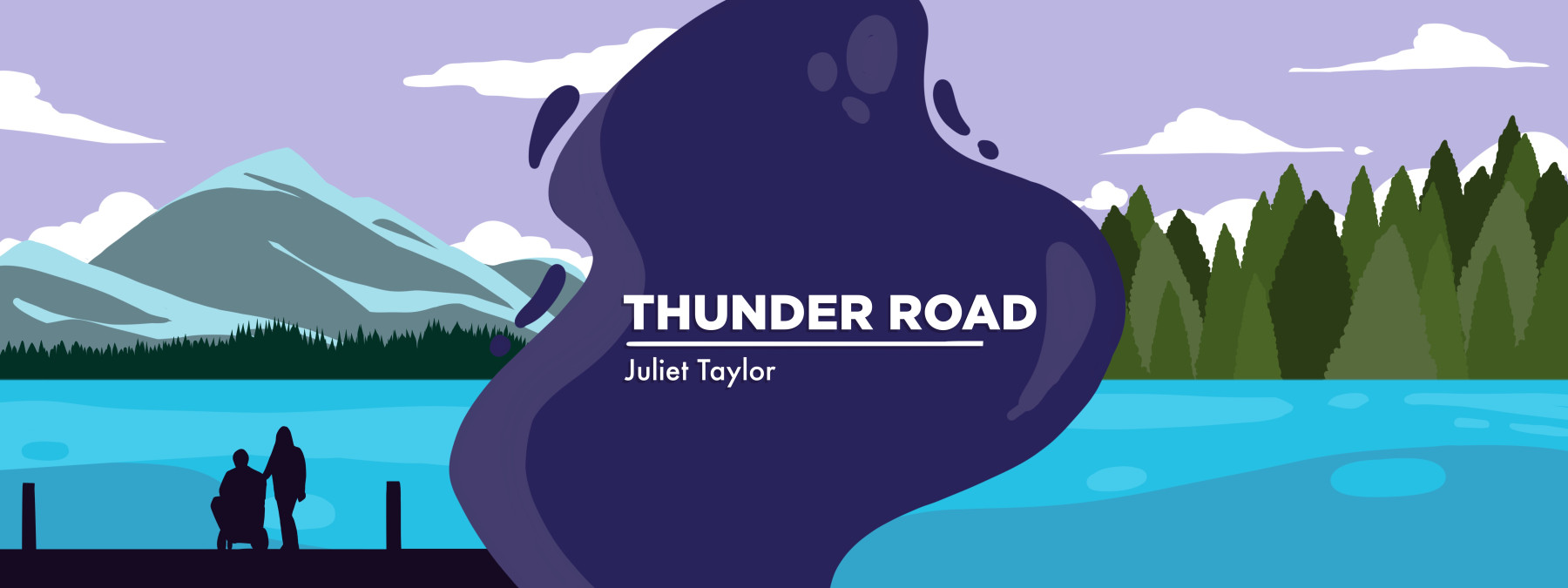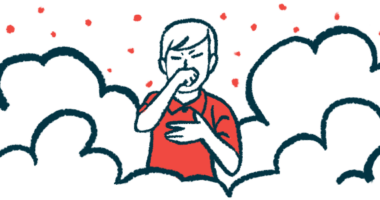What do we do when ALS caregivers become injured or sick?
Even a temporary loss of care can prove unsafe or even devastating

It’s been more than four years since I was a caregiver for my late husband, Jeff, who died of ALS in May 2020. Caring for Jeff is the hardest and scariest thing I’ve ever done, a fact that took me years to acknowledge out loud because I believed that saying so betrayed him.
It’s also true that caregiving was, in retrospect, the most rewarding thing I’ve ever done because I loved him and the experience brought us closer in many profound ways.
I’d never really considered what being a caregiver meant until I became one. And like so many unpaid caregivers in the United States, I learned as I went, and it wasn’t always pretty.
What shocked me most about caregiving was the sheer physicality of it all. Jeff weighed 260 pounds at diagnosis, and I was exactly half that. The Ice Bucket Challenge aside, I didn’t know much about ALS when our local neurologist began gently mentioning it as a possible diagnosis. While I understood ALS was a terrible disease, I didn’t know the impact it can have on the body. I never thought about how a person living with ALS ate, bathed, got dressed, or got into and out of bed, a wheelchair, or a toilet.
Like all caregivers in ALS, I learned to complete these procedures, and dozens more, as safely and competently as I could. Whether it be a family member, friend, paid professional, or some combination of those three, people living with ALS need some level of assistance as the disease progresses, and these carers need to possess, in equal measure, physical strength and dexterity.
What a caregiving crisis means
That’s on my mind today because I broke my arm last week. I fell while walking on uneven ground and instinctively used my wrist to break my fall. The break is a minor inconvenience, and I’m grateful that my arm is expected to heal well over the summer.
It’s interesting, though, that while I was briefly on the ground from my fall, I started thinking about how I’d get things done — shower, brush my teeth, open bottles, or use the laptop to write my column. It turns out that none of those things have been easy to do, but they’re manageable with some patience and ingenuity.
What wouldn’t be possible, however, is caregiving, and that fact alarmed me last Friday even as I lay on the ground from my fall.
If Jeff were still here and I were injured like this, we’d be facing a crisis. As his primary caregiver, I wouldn’t have been able to operate a Hoyer lift, empty a cough-assist machine, or administer a meal through a feeding tube. Too many elements of those tasks require uncompromised physical ability and certain fine motor skills, which I’m lacking right now. Our family and friends would’ve rallied around us, but with difficulty.
This week, I read anew about the caregiving crisis in this country. A 2020 study conducted by AARP and the National Alliance for Caregiving reports that today more than one in five Americans are caregivers, having provided care to an adult or child with special needs at some time in the past year.
In the study’s research report, I learned that “while many caregivers feel their role has given them a sense of purpose or meaning (51%), these positive emotions often coexist with feelings of stress or strain. Caregivers report physical, emotional, and financial strain, … fewer caregivers report their health status as excellent or very good, … and a greater proportion report being in fair or poor health” between the current study and its previous iteration in 2015.
For families living with ALS, the implications of even a temporary loss of caregiving create at best unsafe and at worst devastating situations for our loved ones with ALS. It can also create danger for ourselves, as most of us caring for a loved one have needed to do so while sick, hurt, or otherwise unwell. ALS takes no pauses for sinus infections, depression, or broken arms.
I often like to conclude my columns with a lesson I’ve learned or a reflection I’ve gained from those living with ALS and their families, including my own. When it comes to caregiving, though, that’s hard to do. We have many pressures and few solutions.
My broken arm will heal, but it gives me concern to consider how my friends who are caregiving now would manage through their own illnesses and injuries should they occur. Right now, they rely on hope and luck, neither of which is a certainty or strategy in ALS.
Note: ALS News Today is strictly a news and information website about the disease. It does not provide medical advice, diagnosis, or treatment. This content is not intended to be a substitute for professional medical advice, diagnosis, or treatment. Always seek the advice of your physician or other qualified health provider with any questions you may have regarding a medical condition. Never disregard professional medical advice or delay in seeking it because of something you have read on this website. The opinions expressed in this column are not those of ALS News Today or its parent company, Bionews, and are intended to spark discussion about issues pertaining to ALS.








Panela
Something that on my mind a lot of the time is What if I get sick. Last month I had appendicitis, my appendix was removed overnight. A neighbour took me to the hospital so Jim had to cope on his own, dangerous. What would we do if I developed a serious decease is always on my mind.
JM
Thank you for your note Juliet. My wife was diagnosed two years ago with "upper motor neuron dominant ALS". It's been difficult watching her require more care and lose some of her independence. I am a registered nurse and use my training to help with ambulation, PT and OT and get to be her sous chef when she goes in the kitchen. We were just talking about what would happen should I get injured of have a period of time I would be incapacitated. Thank God it's not happened, but we are trying to think of all those "what if's".
Jeffrey J Edin
My sister and I have ALS. She's got bulbar ALS and I have the other ALS. Her boyfriend is her primary caregiver. I'm not married and don't have a primary caregiver. Thank God I'm a veteran.
Joy
Thank you for this, and it’s important to know. Maybe we need a back up plan, too.!
Carol Smith
I fell on Mother's Day this year. I broke both bones in the left arm and 2 bones in my wrist. When I fell the first thing on my mind was how am I to continue care for my husband and I became so mad at myself. When I got back in the house I kept apologizing to him as I felt I had let him down. He was so upset that I was crying. He said we will make it work and not to worry. He is chair bound mostly but can still stand for very short periods. He was diagnosed 3 years ago with Bulbar. We have had no help from either of our respective families. We have repeatedly tried to reach palliative care but they are not returning our call. Our family doctor said we can't get help due to the fact that I can still walk which I thought was insane. We have carried on, making changes along the way. We laugh since I can only use my right arm that it is going to look like Popeye's arm by the time I get the cast off, hopefully by September. We are so thankful it was my left arm as I am right handed. My husband is doing well with how I have to do things for now and we make jokes about it now. Come on September!
Cheryl
Thanks so much, Juliet, for sharing your deepest concerns for ALS sufferers and their families. My husband, Lee, was [accurately] diagnosed in March of this year (2024), however, had been diagnosed with a similar disease (MMN) prior to March. Lee has been suffering for over 2 years with ALS. His symptoms are progressively worsening; he is on Radicava and Riluzole. As far as is apparent, neither is helping. His mental outlook is also worsening, although he is a man of great faith. That is his only saving grace.
I hope your injury heals well.
Cheryl
Carol hennarichs
Thank you for the wonderful information
Michelle od
I broke my back 6.6 yrs ago in 2018 and then husband diagnosed als in 2021 and since end of 2022 his needed hands on care and now fully total care almost 300lbs and I'm 100lbs petite part time wheelchair user and weaker than the average person both upper and lower extremities and still doing his full body hygiene now mainly sponge bath majority on my own since he doesn't want to use hoyer either his brother had to move in with us and helps with the transfers and moving/ comfort when in bed for the baths . Overall most tasks my responsibility to initiate, micromanage or wait on and insist his brother for help or not having active hardworking and competent caregivers that mainly fo companionship hang out with pals instead of doing the bigger tasks to allow me to spend time with my husband that I miss...